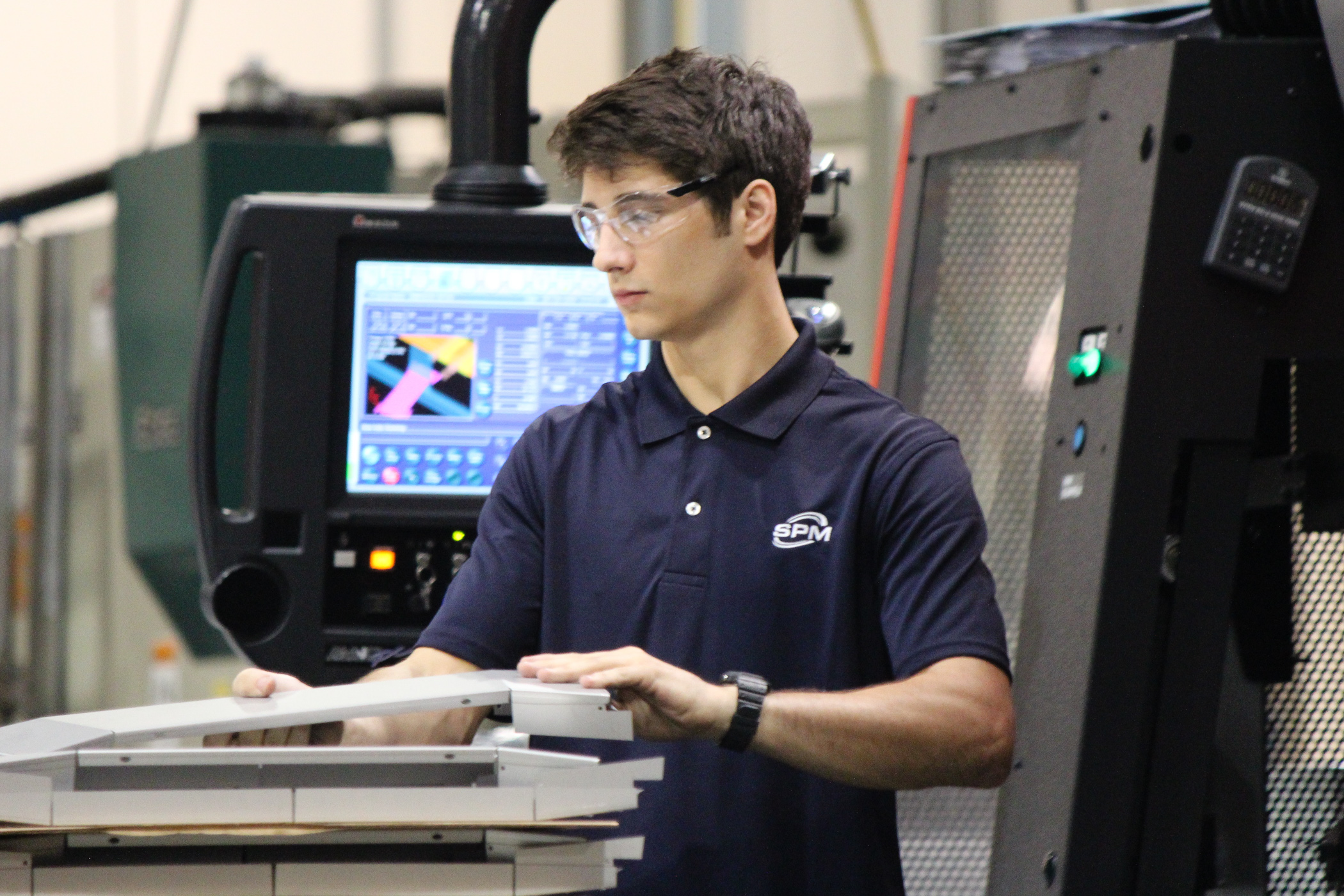SPM is committed to providing a competitive advantage to our customers through the implementation of Lean Manufacturing Methodologies. These methodologies are designed to minimize material and labor waste without sacrificing productivity. By being a leader in Lean Manufacturing, we can reduce costs, eliminate the 8 Wastes, increase production, and maintain high levels of quality.
Refers to the extra steps taken to accommodate inefficiencies such as defects, overproduction, or excess inventory. Motion takes time and adds no value to the product.
Any supply that is in excess of what is required to complete current projects. Excess inventory can quickly build up and waste valuable resources such as space and handling.
Refers to products that do not meet expectations or conform to their required specifications. Defects are anything not done correctly the first time and must be repaired, re-sorted, or re-made.
Producing more than what is needed, faster than it is needed, or before it is needed. This results in product being produced in excess of what is required and excess inventory carrying costs.
Unnecessary motion or movement of products that does not directly support production. Transportation should be minimized for two reasons: it adds time to the process rather than value, and materials are exposed to handling damage.
Periods of inactivity that occur because a preceding activity did not deliver on time or finish completely. Waiting increases cycle time, during which no value-added activity is performed.
Generally refers to unnecessary steps in operations, such as reprocessing, double-handling, added communication, and double-checking which adds no value to the product.
Not using available brain power and intelligence to make the work area safer, more efficient, or to eliminate wastes. This includes training people but not allowing them to use that knowledge.
Waste Reduction is one of our foundational principles. We monitor our production flows and identify opportunities for improvement to reduce non-value-added time. We also streamline our processes with “point of use” tools and resources to omit waiting and excessive motion which increases our productivity. By reducing our waste, we are equipping ourselves to thrive well into the future.
Our Just-In-Time (JIT) strategies increase our production capacity and shifts working capital towards suppliers. We accomplish this through cellular manufacturing and partnership programs such as Consignment, Supply Chain Management, and Vendor-Managed Inventory.
We design Manufacturing Cells to increase throughput and reduce non-value-added processes. Our manufacturing cells improve production flow, reduce lead times, and increase productivity, all of which allow SPM to manufacture high-quality products at a lower cost to our customers.
Since our founding, SPM has been an avid investor in the best in automation. Automated systems such as robotic welders, material towers, self-tooling press brakes, and ERP system allow us to gain increased productivity, increased production capacity, consistent output, and predictability of quality.
Visual aids are used throughout our facilities as metrics for safety, quality, and performance. Our visual aids are process-specific and instill discipline to following standard work procedures. We use these aids to ensure that quality specifications and production processes are clearly communicated and easy to understand. This eliminates opportunities for failure and allows us to be repeatable in our quality.
We use Andon systems to notify our support departments about any issues that may arise. This alert system uses audio alarms to initiate a rapid response time from multiple departments. Using the Andon gives our associated the ability to call for immediate assistance, resolve the issue, and resume production. Each occurrence is logged into our ERP system and can be used as a focus for Continuous Improvement.
